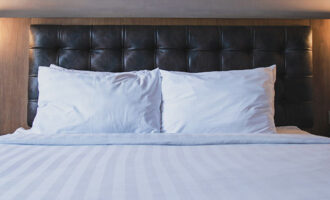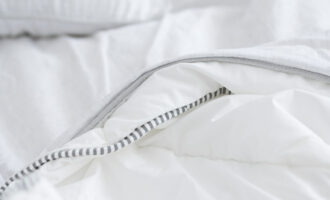While using electronic devices like smartphones and laptops before bed might seem harmless, research indicates that these gadgets can hinder the body’s capacity to fall asleep by dampening melatonin production, a crucial hormone for sleep regulation. The light emitted by screens can lead to increased alertness at a time when the body should be preparing to wind down, making it challenging to achieve a restful night’s sleep.
Understanding Sleep Cycles and Electronics’ Role
Our natural 24-hour sleep-wake cycle is closely tied to sunlight exposure, helping us feel awake in the morning and sleepy as night falls. However, the blue light from electronic devices can interrupt this cycle by suppressing melatonin production, affecting not just the ease with which we fall asleep but also the quality of sleep we achieve, particularly the slow-wave and REM sleep stages essential for cognitive function.
The Vulnerability of Children and Adolescents
Children and adolescents are especially susceptible to the sleep-disrupting effects of blue light. Studies have found that screen time before sleep can lead to increased sleep latency – the time it takes to fall asleep – and diminish the overall quality of rest, leaving them feeling fatigued the following day. Similarly, certain household lighting can hinder the body’s melatonin production, affecting our natural sleep readiness.
Best Practices for Nighttime Electronic Use
To counter the effects of blue light and promote better sleep hygiene, it’s advised to limit the use of electronic devices before bedtime and establish a screen-free wind-down routine. Ensuring the bedroom environment is conducive to sleep, such as by keeping it dimly lit and free from gadgets, can also play a significant role in improving sleep quality.
- Limiting Daytime and Nighttime Device Usage: Prolonged exposure to screens can have a detrimental impact on sleep, particularly in young adults and teenagers. It’s beneficial to discuss and manage the amount of time spent on devices throughout the day.
- Creating a Relaxing Pre-Bedtime Routine: Engaging in calming activities without screens an hour before sleep can significantly enhance sleep quality.
- Maintaining a Screen-Free Bedroom: The absence of electronics in the sleeping environment encourages a more sleep-friendly atmosphere, discouraging late-night TV or phone use.
- Dimming Lights in the Evening: Reducing light exposure before bed can assist in the natural production of melatonin, promoting a smoother transition to sleep.
- Utilizing Night-Time Modes on Devices: When avoiding screens isn’t feasible, activating a device’s night mode can mitigate some of the blue light exposure, aiding in the preparation for sleep.
- Considering Blue Light Blocking Glasses: For those requiring screen time in the evening, blue light blocking glasses can be an effective tool in minimizing blue light’s impact on sleep.
Conclusion
While modern life often requires the use of electronics, understanding their impact on sleep and taking proactive measures to mitigate their effects can significantly enhance the quality of our rest. By implementing strategies to reduce exposure to blue light in the evening, we can preserve our natural sleep patterns and ensure a more restful and rejuvenating sleep experience.





